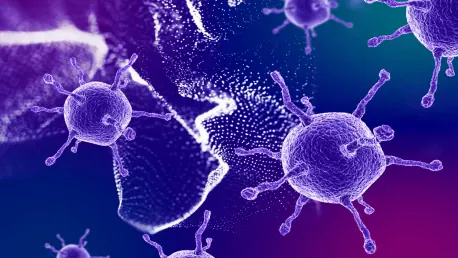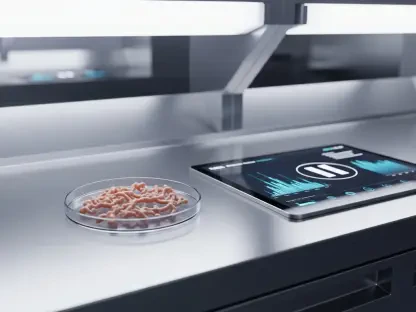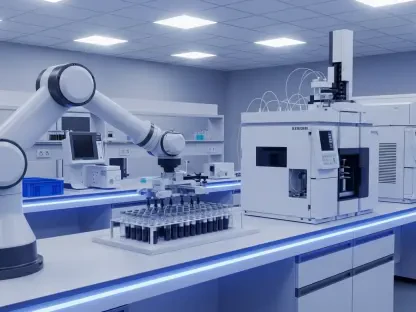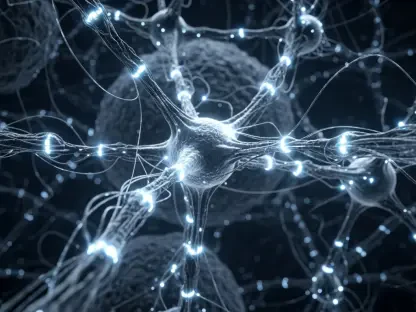Recent research from Penn Medicine has uncovered a potentially groundbreaking approach to enhance the effectiveness of CAR T cell therapy, a highly personalized cancer treatment designed to reprogram immune cells to target and destroy cancer cells. The crux of the discovery lies in the idea that a ketogenic diet, or alternatively, a dietary supplement known as beta-hydroxybutyrate (BHB), could substantially boost the cancer-fighting prowess of CAR T cells by augmenting T cell metabolism. Although these preliminary results are promising, they require further clinical trials and validation before any specific dietary recommendations can be issued.
The development of CAR T cell therapy at Penn Medicine marked a significant advancement in personalized cancer treatments. The process involves redesigning a patient’s T cells—those essential immune cells tasked with battling infections and diseases—so they can specifically locate and dismantle cancer cells. Despite CAR T cell therapy’s success with thousands of patients suffering from blood cancers, its efficacy is not universal. Driven by the aspiration to refine this treatment beyond further genetic tweaking, co-lead author Shan Liu, PhD, and Puneeth Guruprasad, PhD, shifted their focus towards dietary influences on T cells.
The Role of Diet in Enhancing CAR T Cell Therapy
Liu, now a research fellow, and Guruprasad, currently a medical student, collaborated under the guidance of Marco Ruella, MD, an assistant professor of Hematology-Oncology, and Maayan Levy, PhD, an assistant professor of Microbiology. Their mission was to investigate how different diets—ketogenic, high-fiber, high-fat, high-protein, and high-cholesterol—affect the tumor-fighting capabilities of CAR T cells in a mouse model of diffuse-large B-cell lymphoma. Their findings were telling; mice on the ketogenic diet exhibited superior tumor control and increased survival rates relative to other dietary regimens. Crucially, they identified that BHB, a byproduct of the ketogenic diet synthesized by the liver, was integral in this positive outcome.
Pushing the envelope further, the research demonstrated that CAR T cells seem to favor BHB over common sugars like glucose as their primary energy source. This preference correlated with enhanced energy levels and efficiency in CAR T cells, which in turn, could make them more effective at combating cancer cells. On this basis, Guruprasad hypothesized that by elevating BHB levels in the body, it might be possible to invigorate CAR T cells and amplify their cancer-fighting abilities even further.
Translational Studies and Human Implications
To unravel whether BHB could have a similar effect in humans, researchers embarked on translational studies utilizing samples from both patients and healthy volunteers. Their studies indicated that in patients who had recently undergone CAR T cell therapy, higher BHB levels were associated with greater CAR T cell proliferation and improved treatment outcomes. Equally, healthy volunteers who consumed a BHB supplement exhibited notable changes in their T cell energy metabolism, further supporting the hypothesis that BHB could play a vital role in enhancing CAR T therapy.
While previous studies have delved into the potential of high-fiber diets and other dietary modifications to bolster cancer immunotherapy, the current findings pointed to a different mechanism. Instead of focusing on changes induced in the gut microbiome—a commonly investigated area—the effectiveness of BHB seemed rooted in metabolic alterations within the blood. This distinction is critical as it suggests a new avenue of exploration that diverges from the conventionally examined pathways in the realm of cancer immunotherapy.
Clinical Trials and Future Directions
Research from Penn Medicine has revealed a promising approach to enhance CAR T cell therapy, a personalized cancer treatment that reprograms immune cells to target cancer cells. The key finding suggests that a ketogenic diet or a supplement called beta-hydroxybutyrate (BHB) can significantly improve the cancer-fighting ability of CAR T cells by boosting their metabolism. While these initial results are encouraging, they must undergo further clinical trials and validation before being translated into specific dietary guidelines.
Penn Medicine’s development of CAR T cell therapy marks a significant advance in personalized cancer treatments. The process entails redesigning a patient’s T cells—key immune cells that combat infections and diseases—to specifically target and destroy cancer cells. Despite its success in treating thousands of patients with blood cancers, CAR T cell therapy is not universally effective. To improve this therapy, researchers Shan Liu, PhD, and Puneeth Guruprasad, PhD, focused on dietary influences, investigating how diet can enhance the performance of T cells in fighting cancer.









